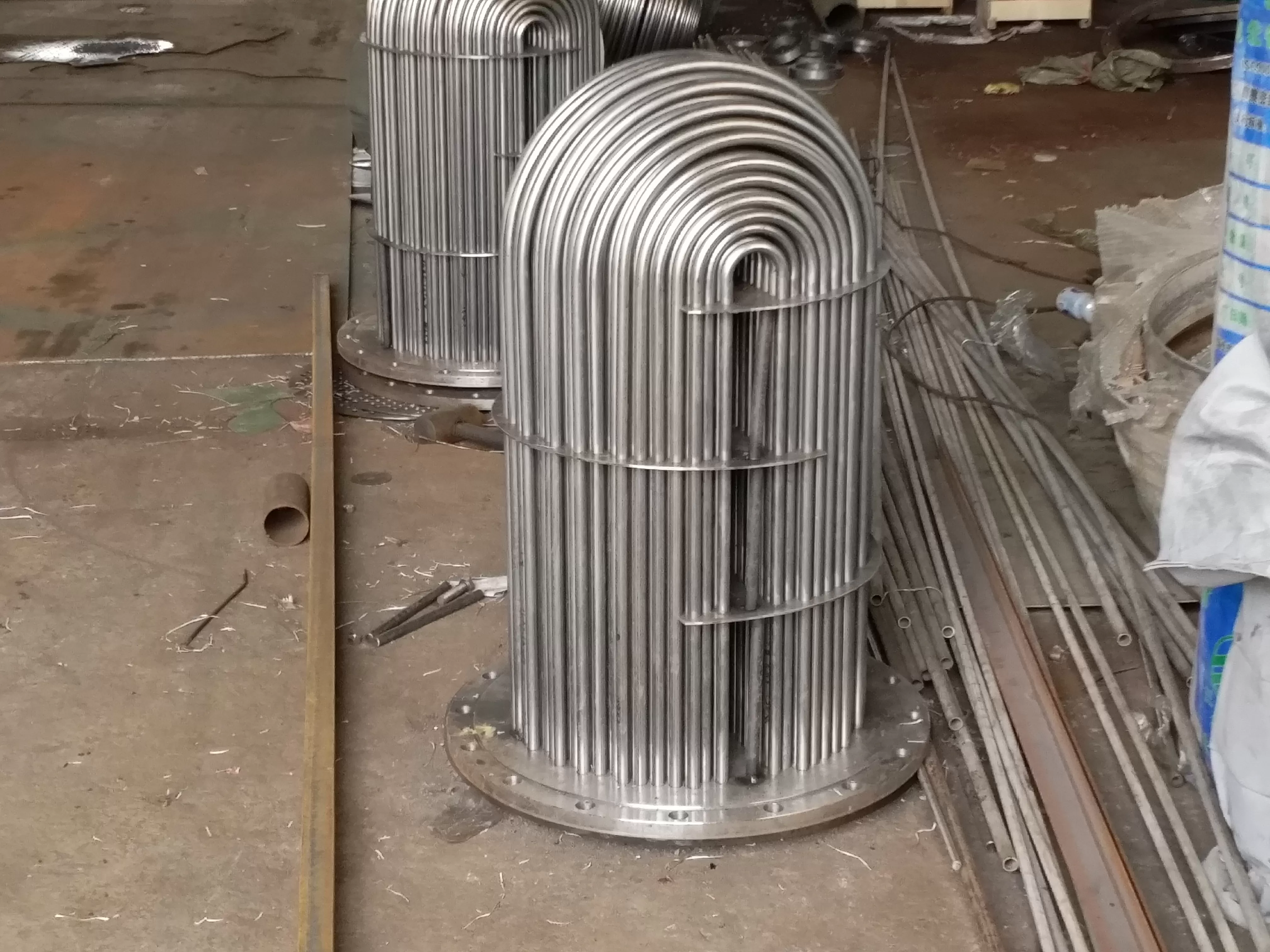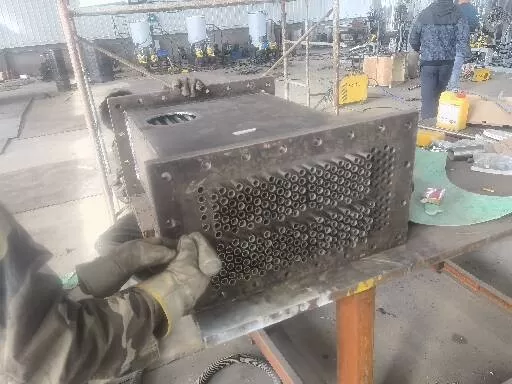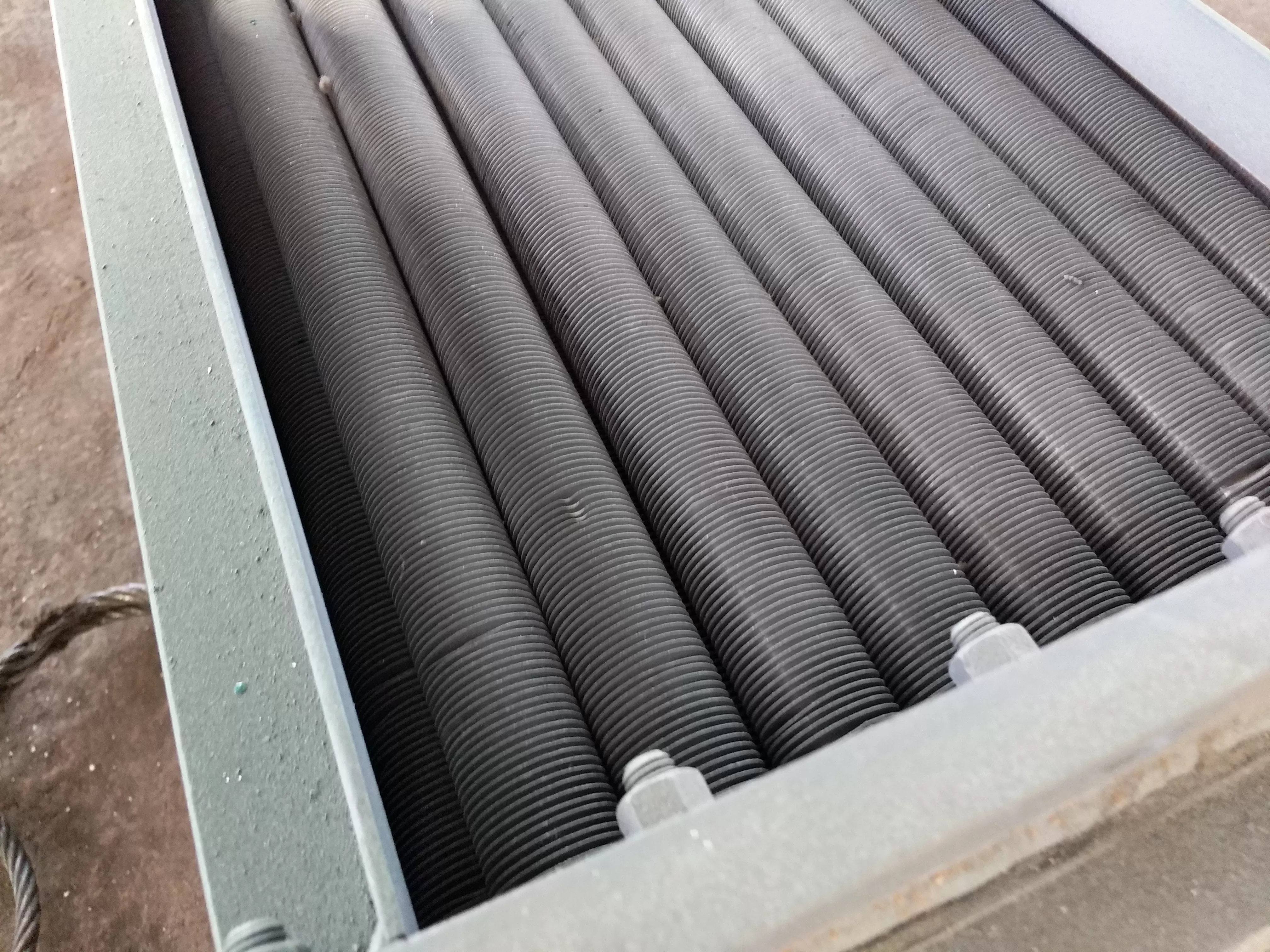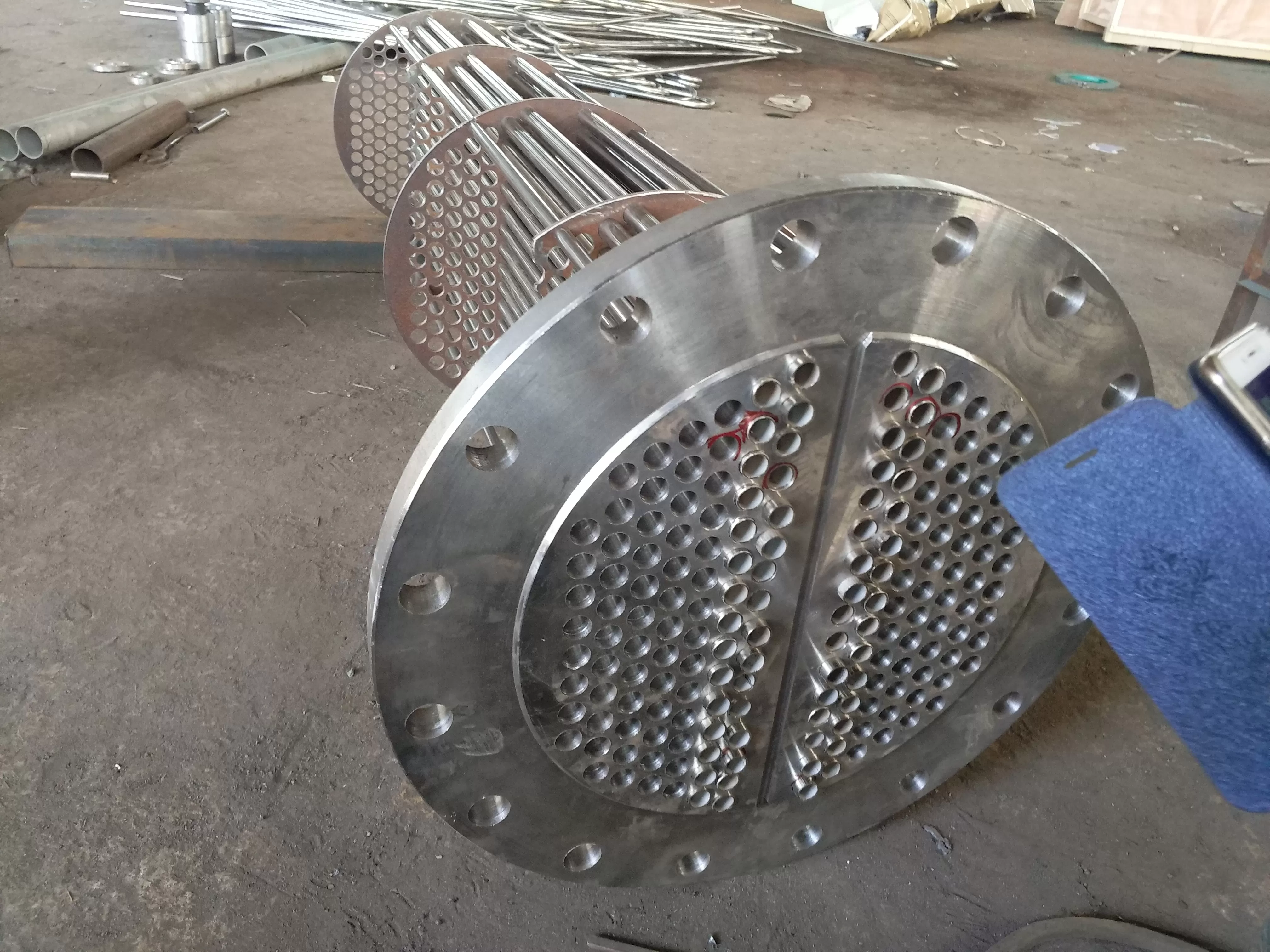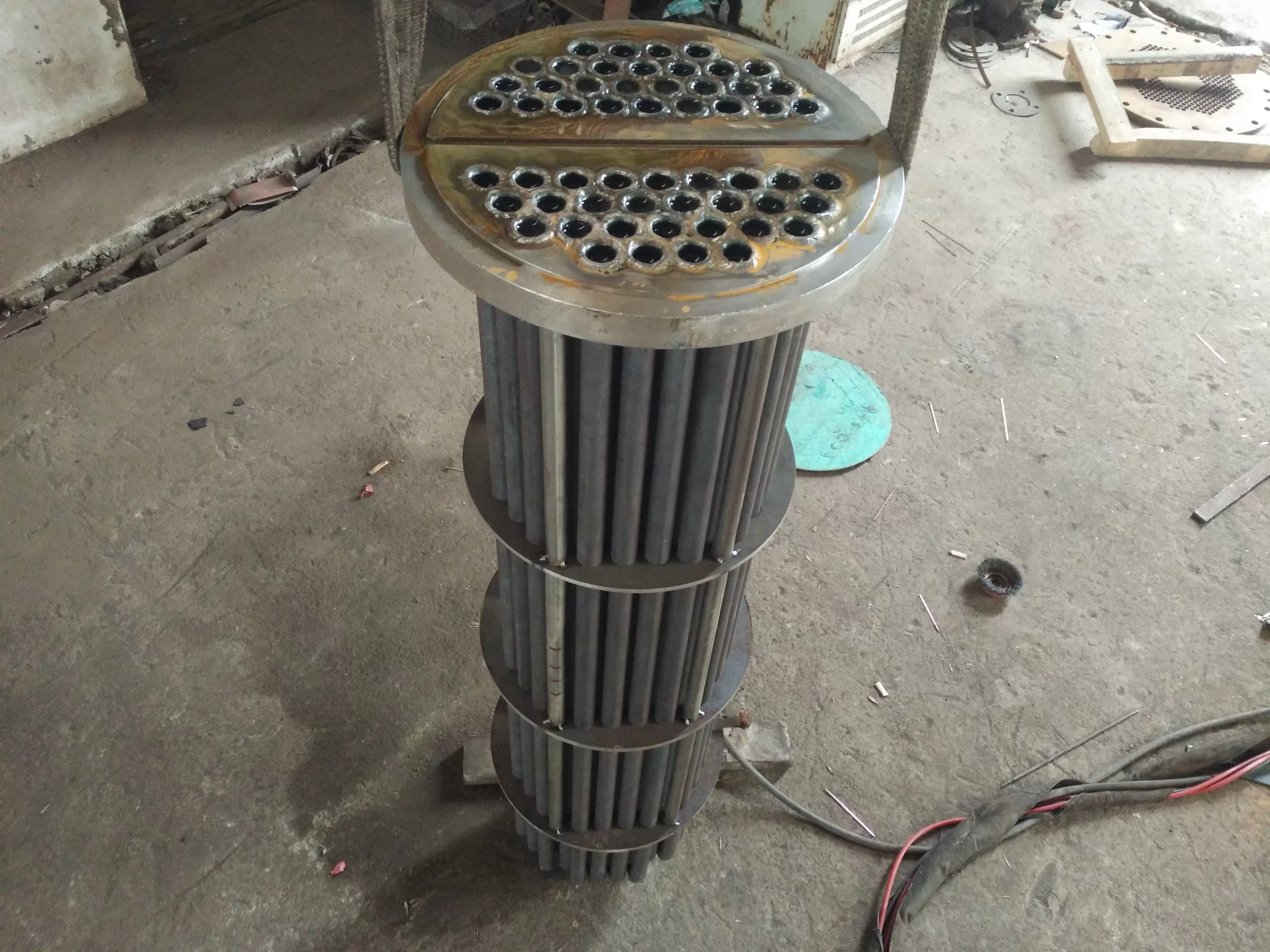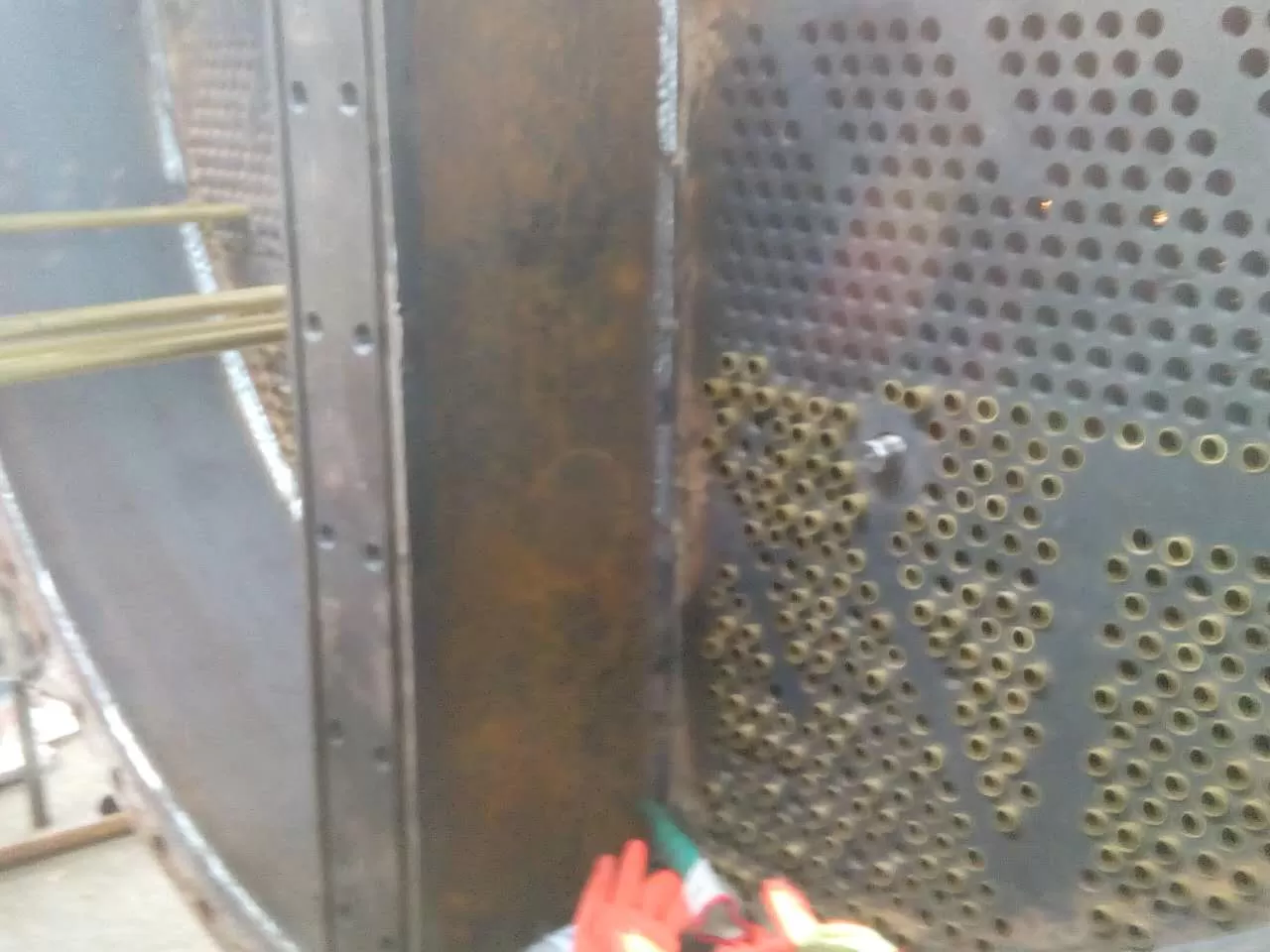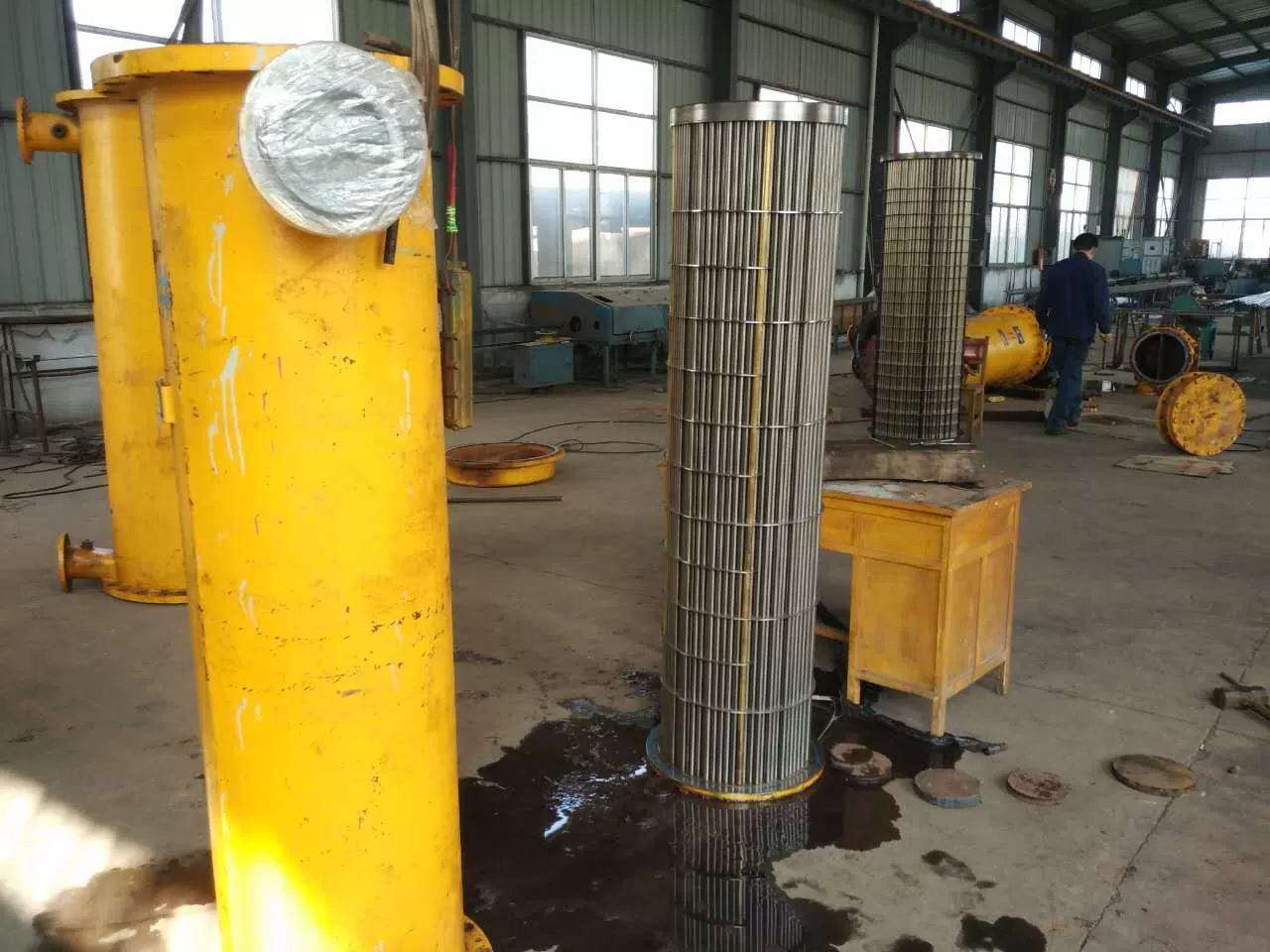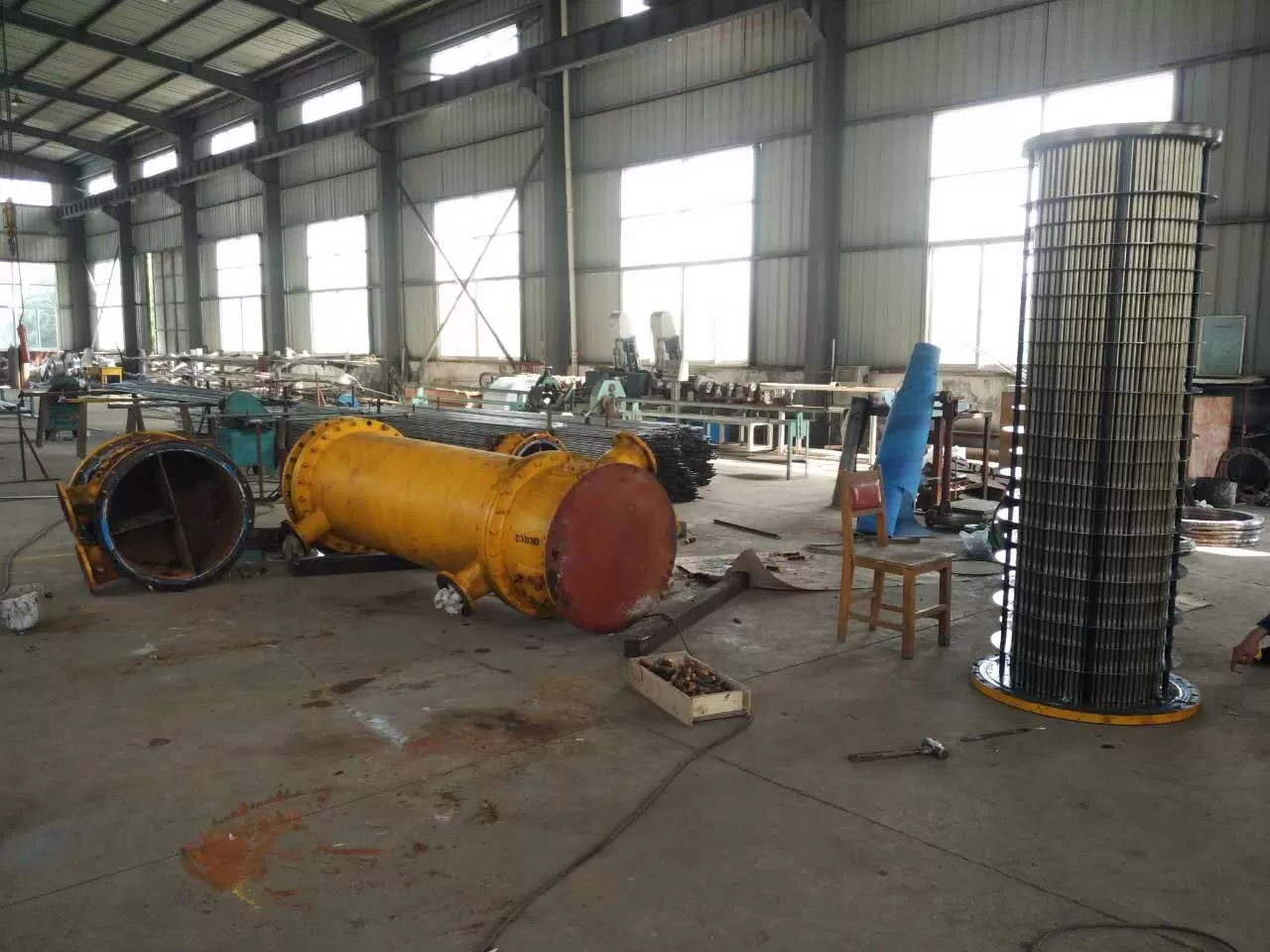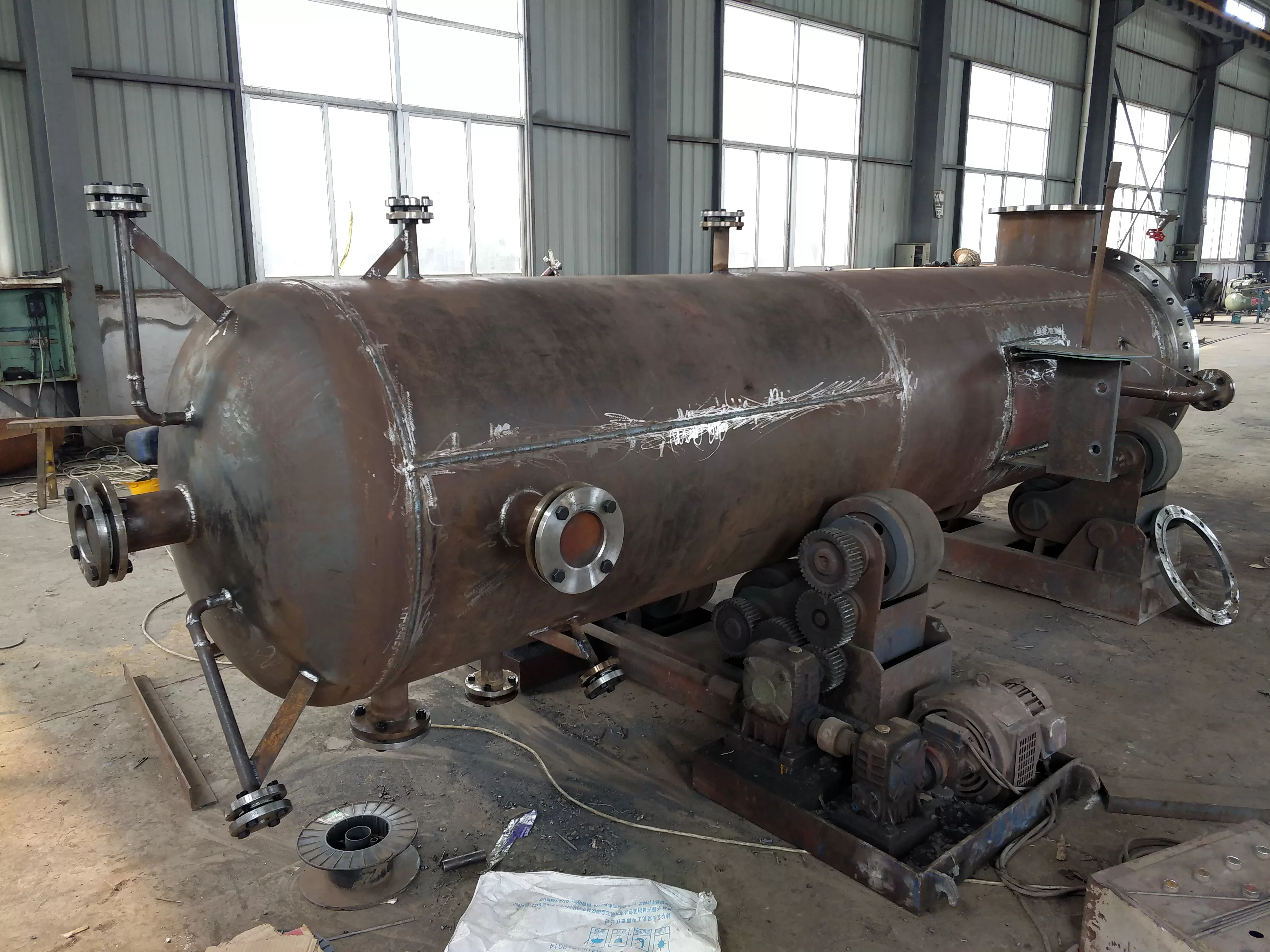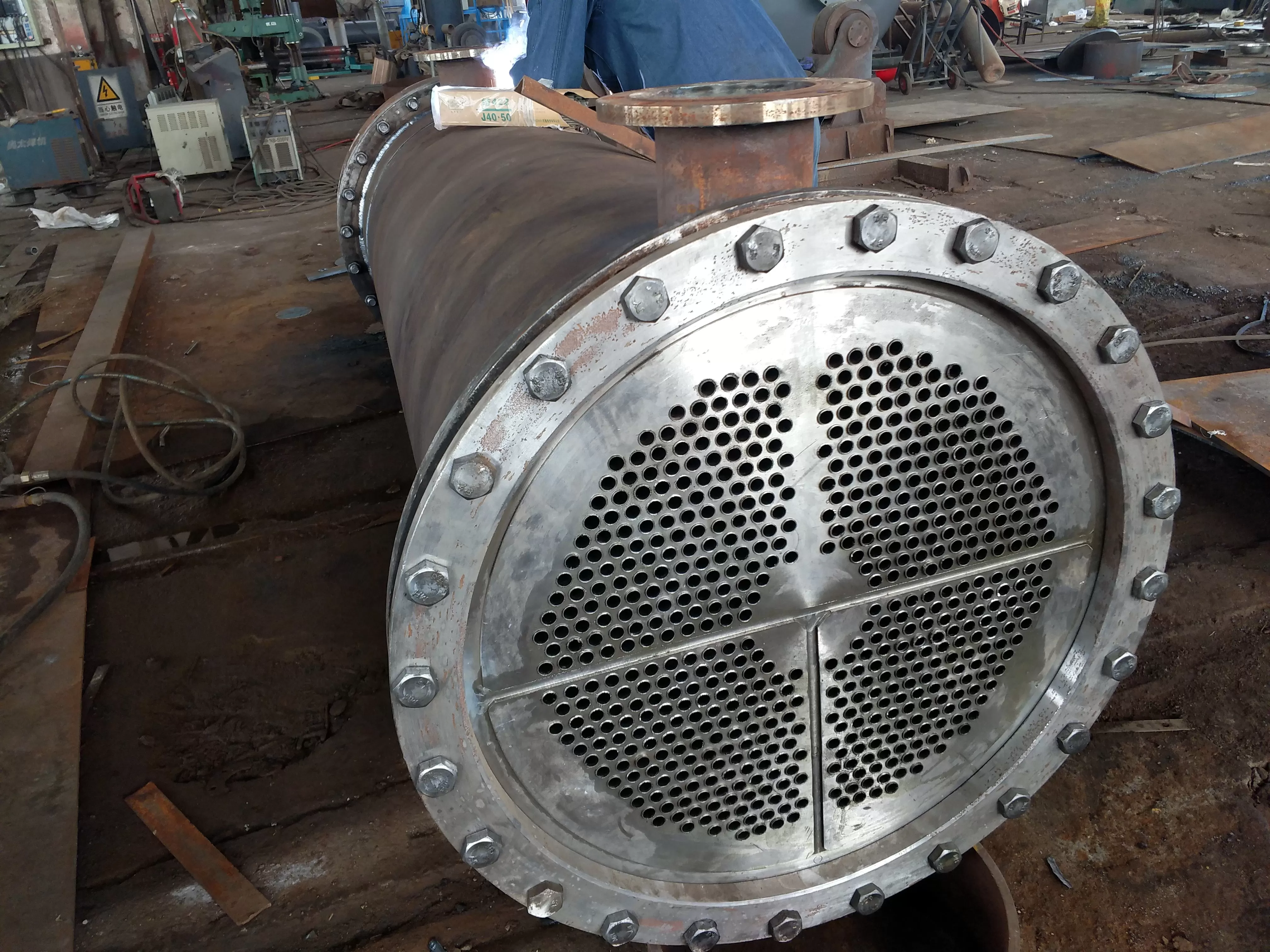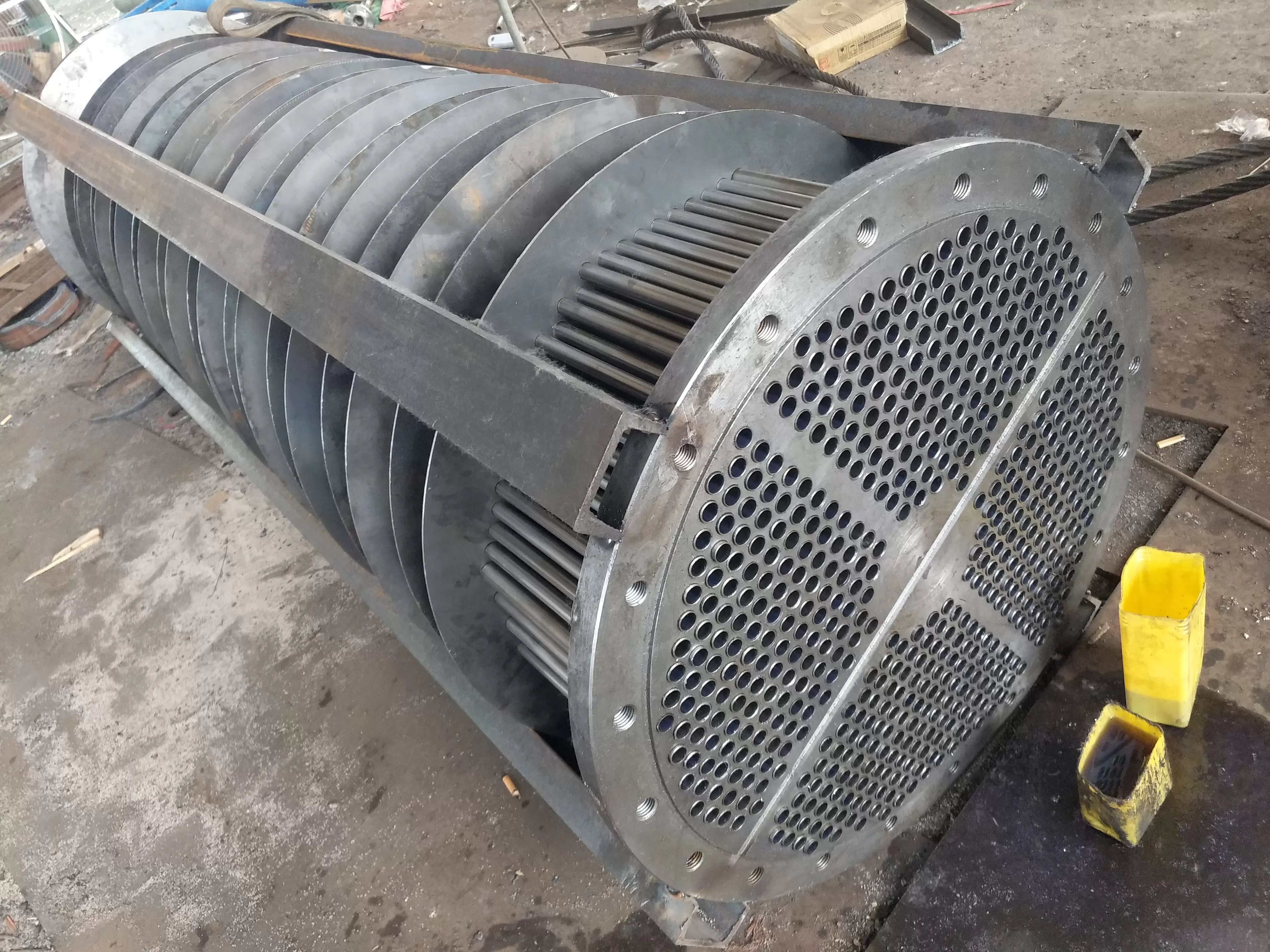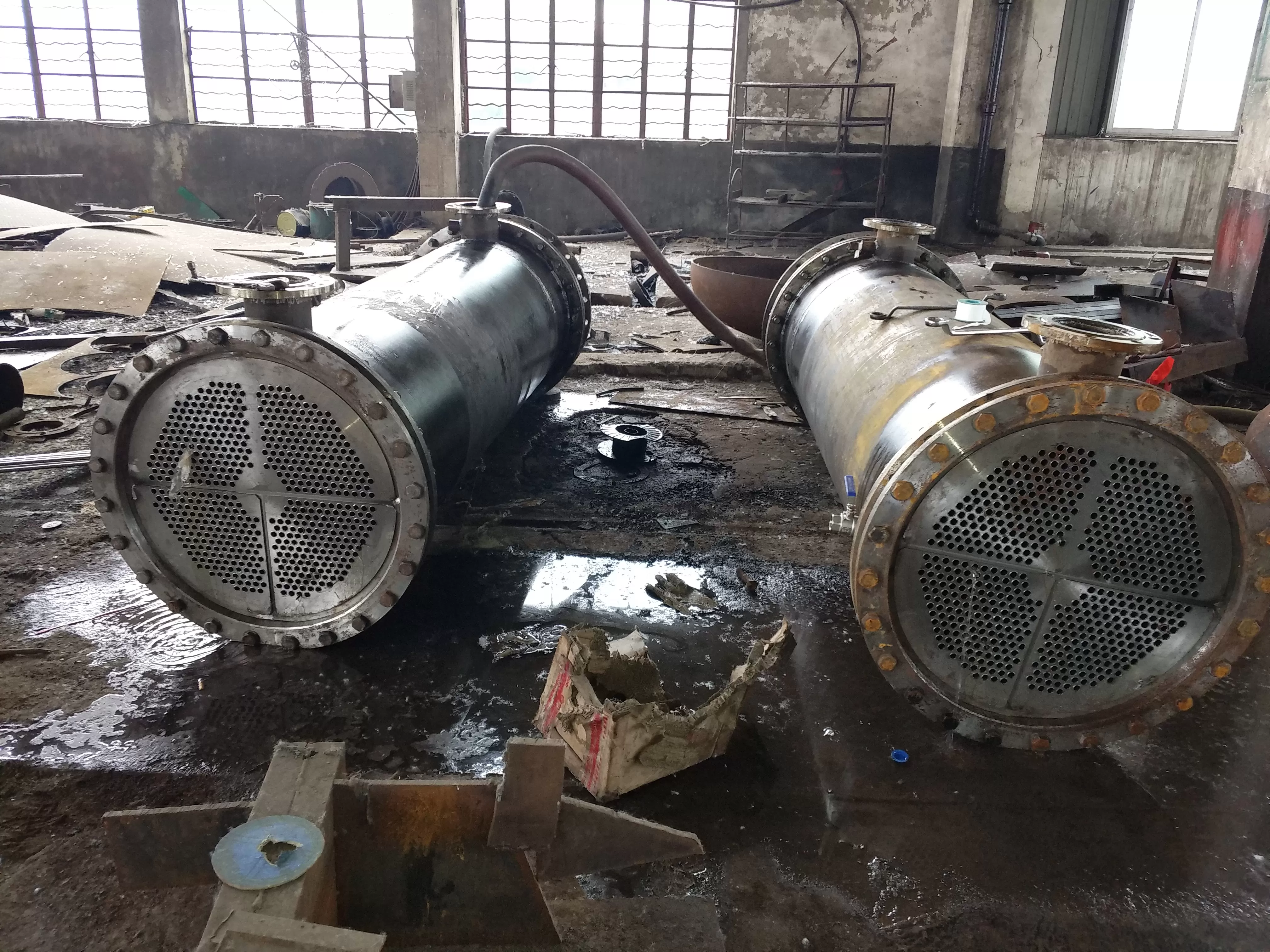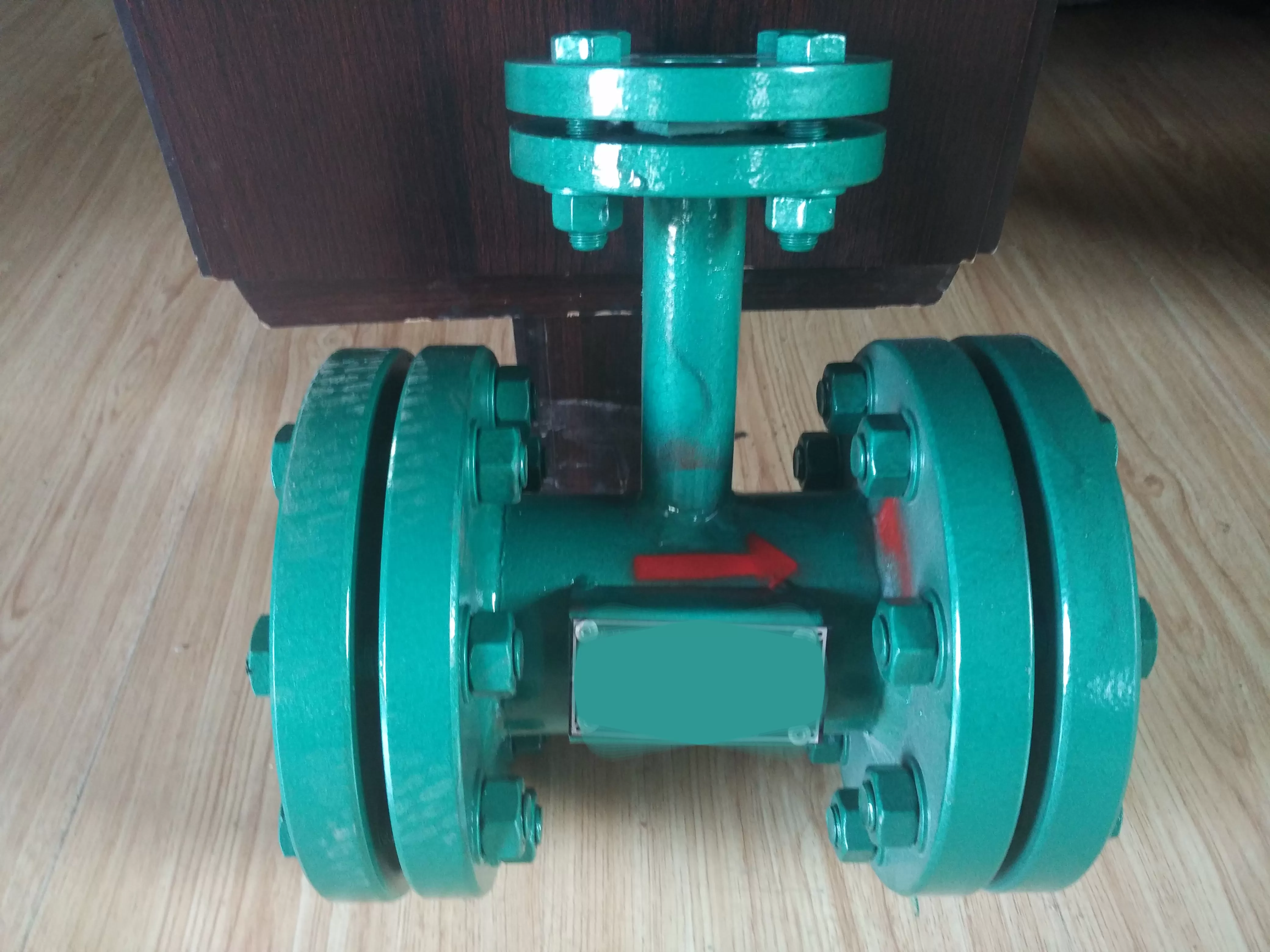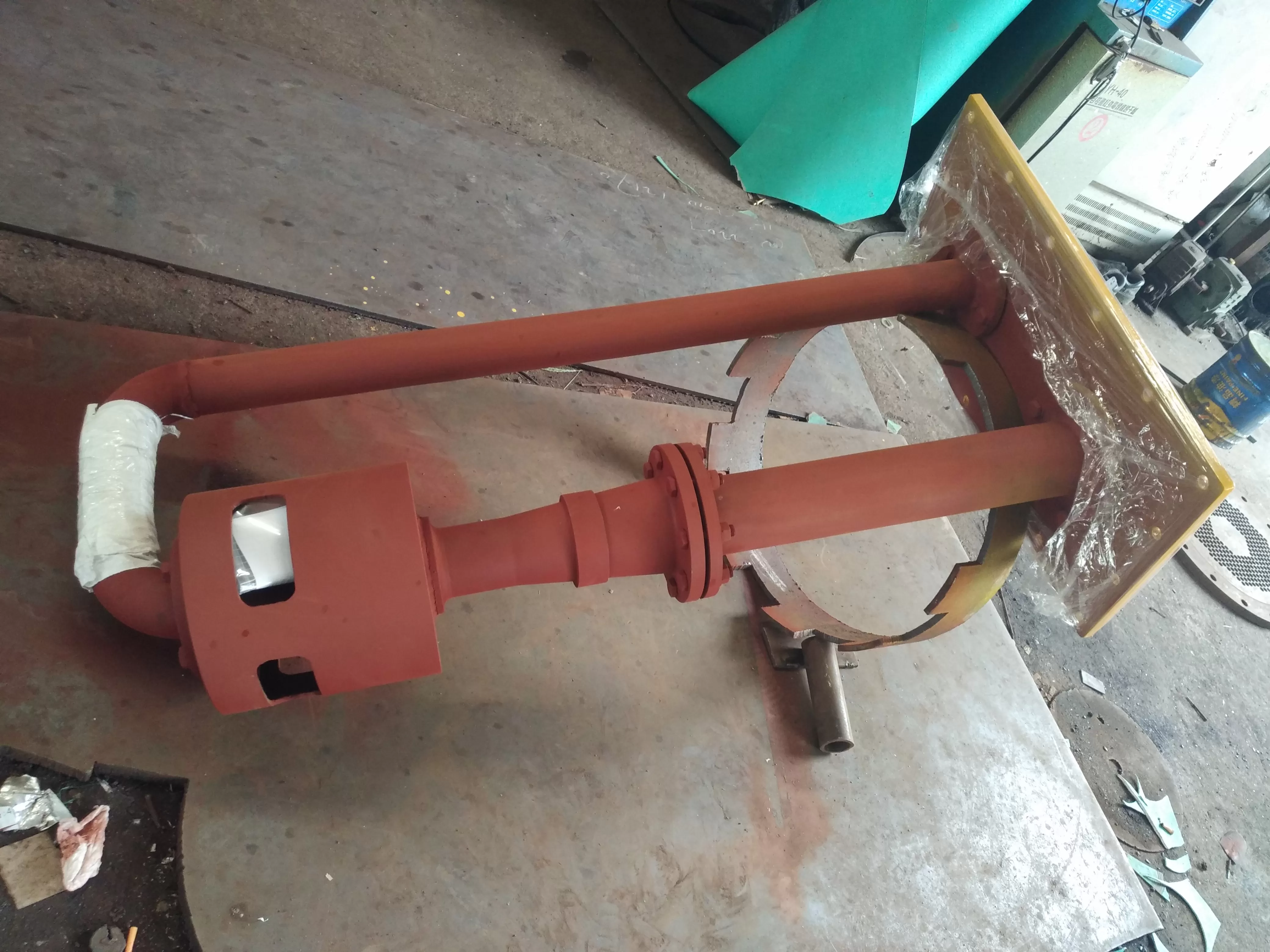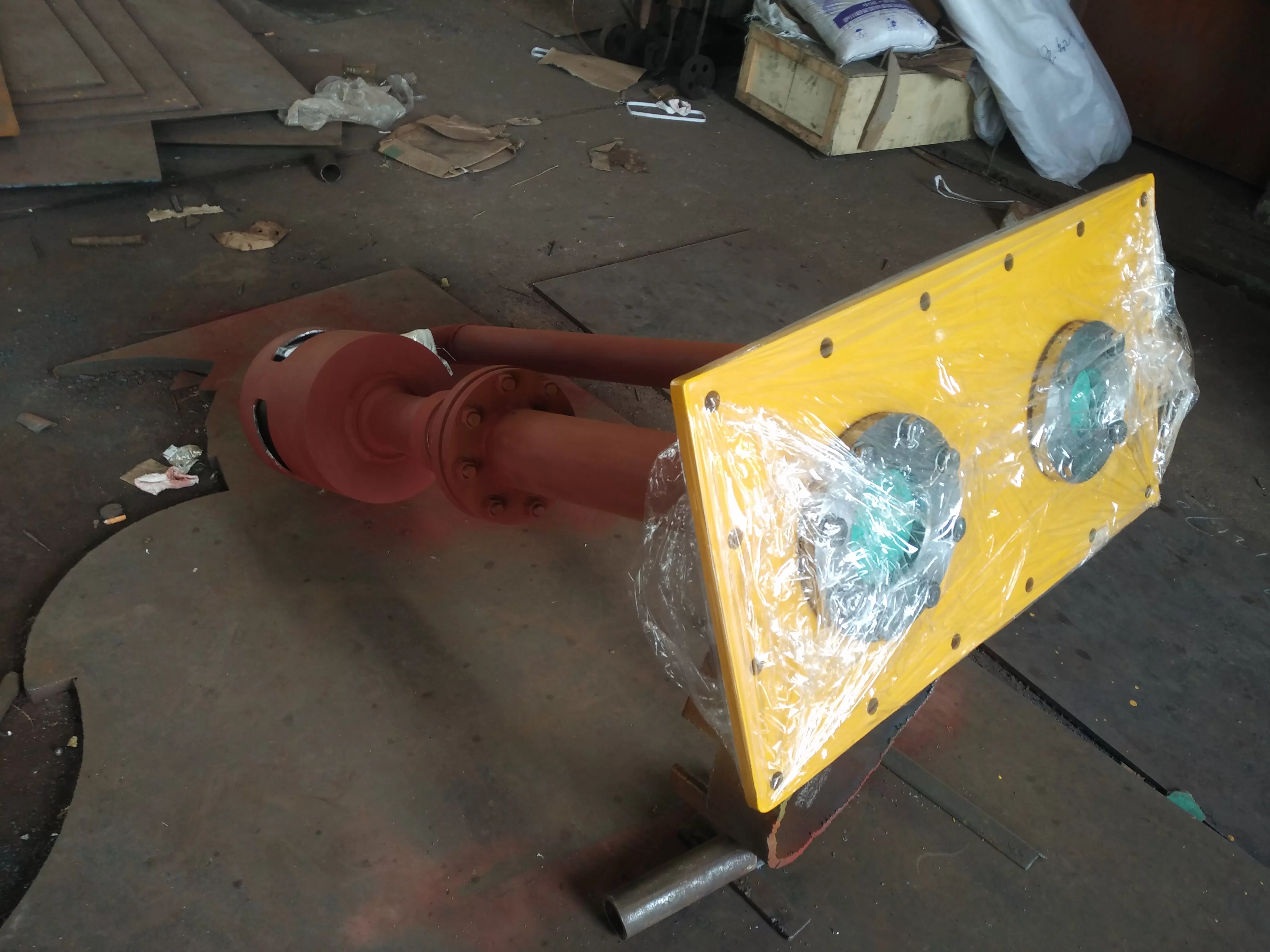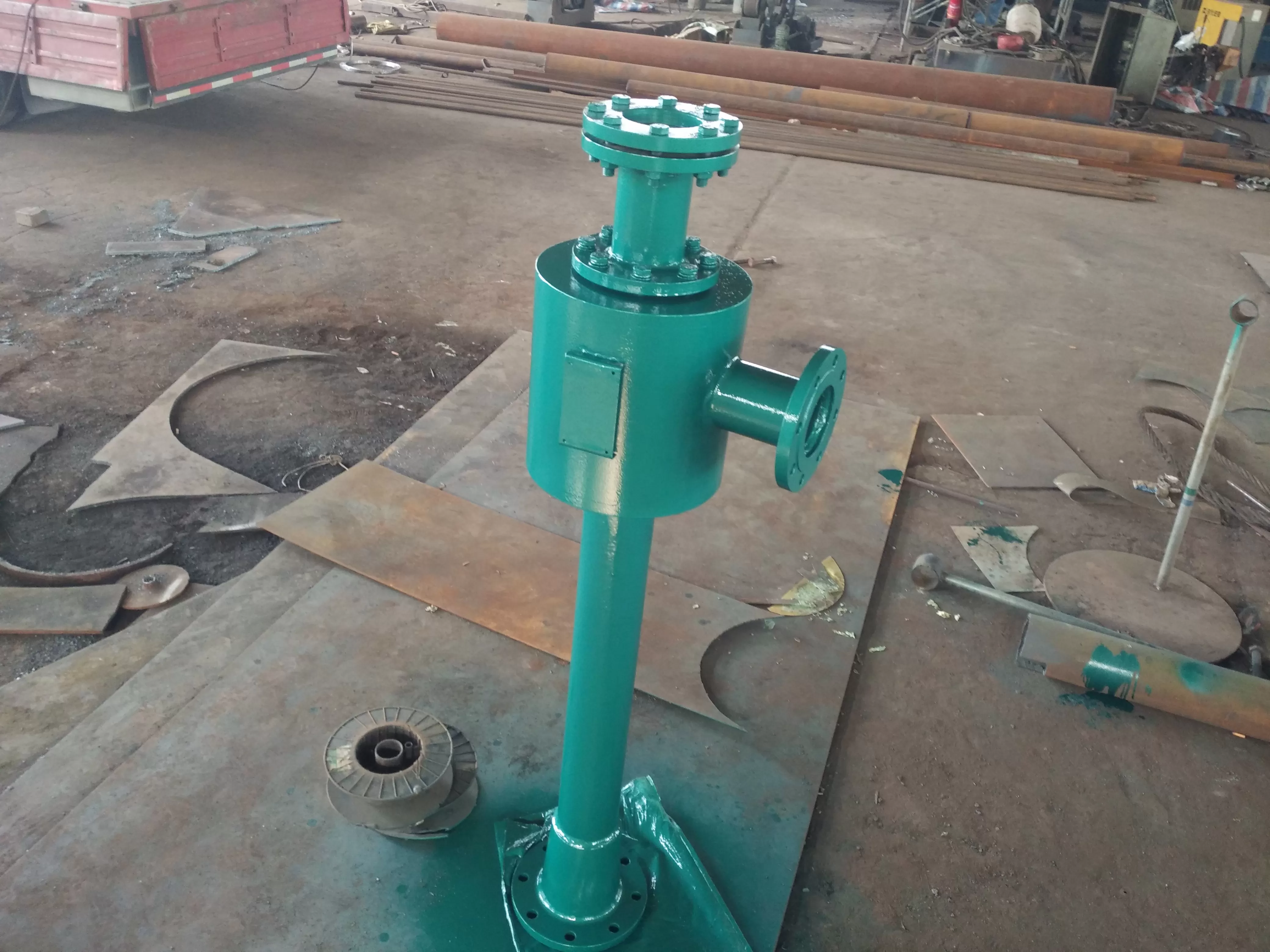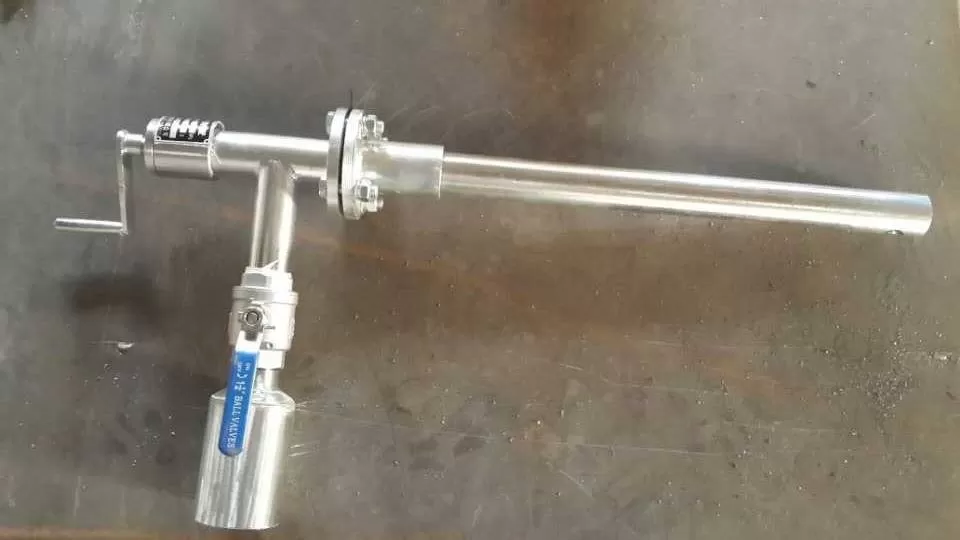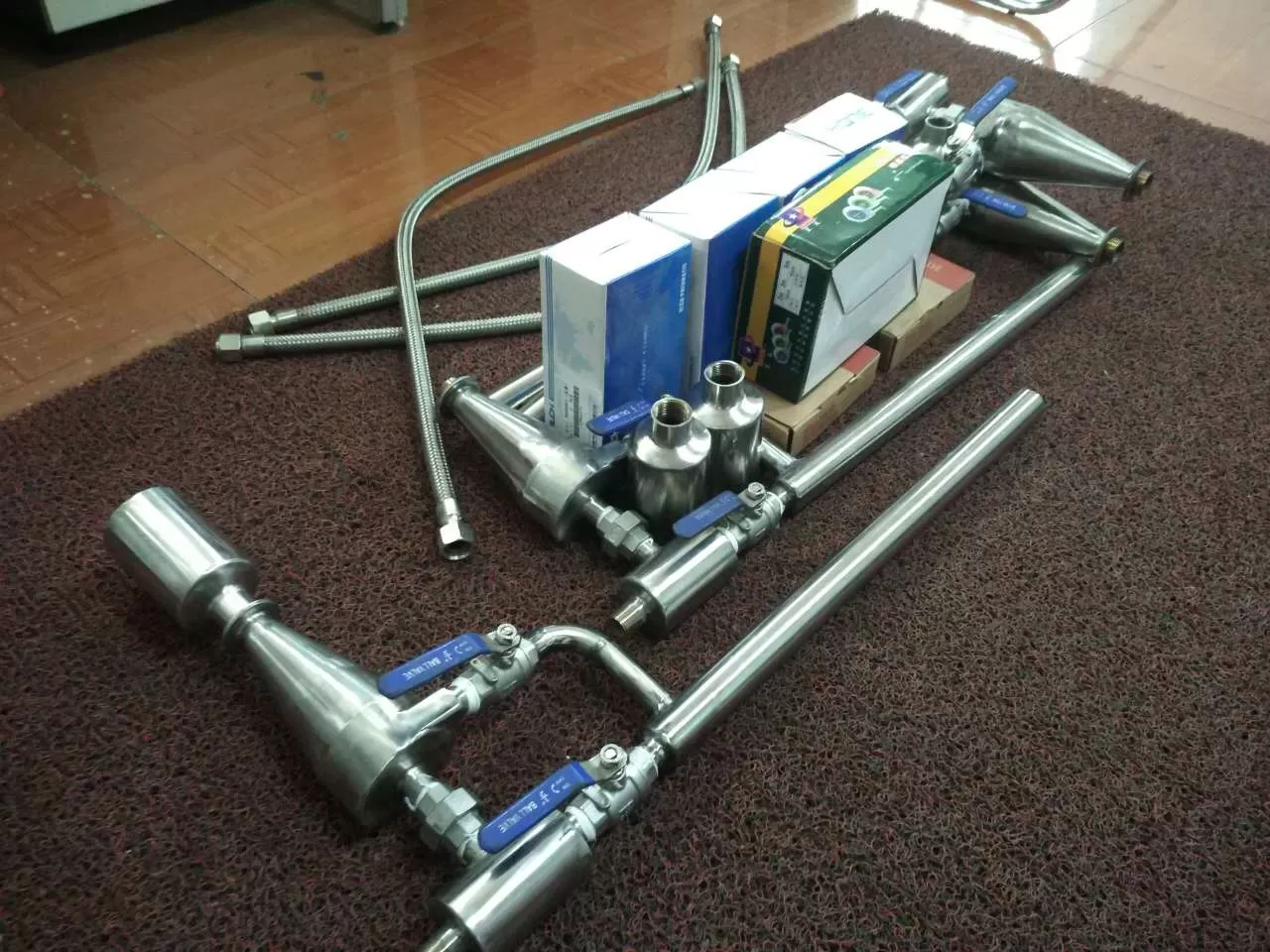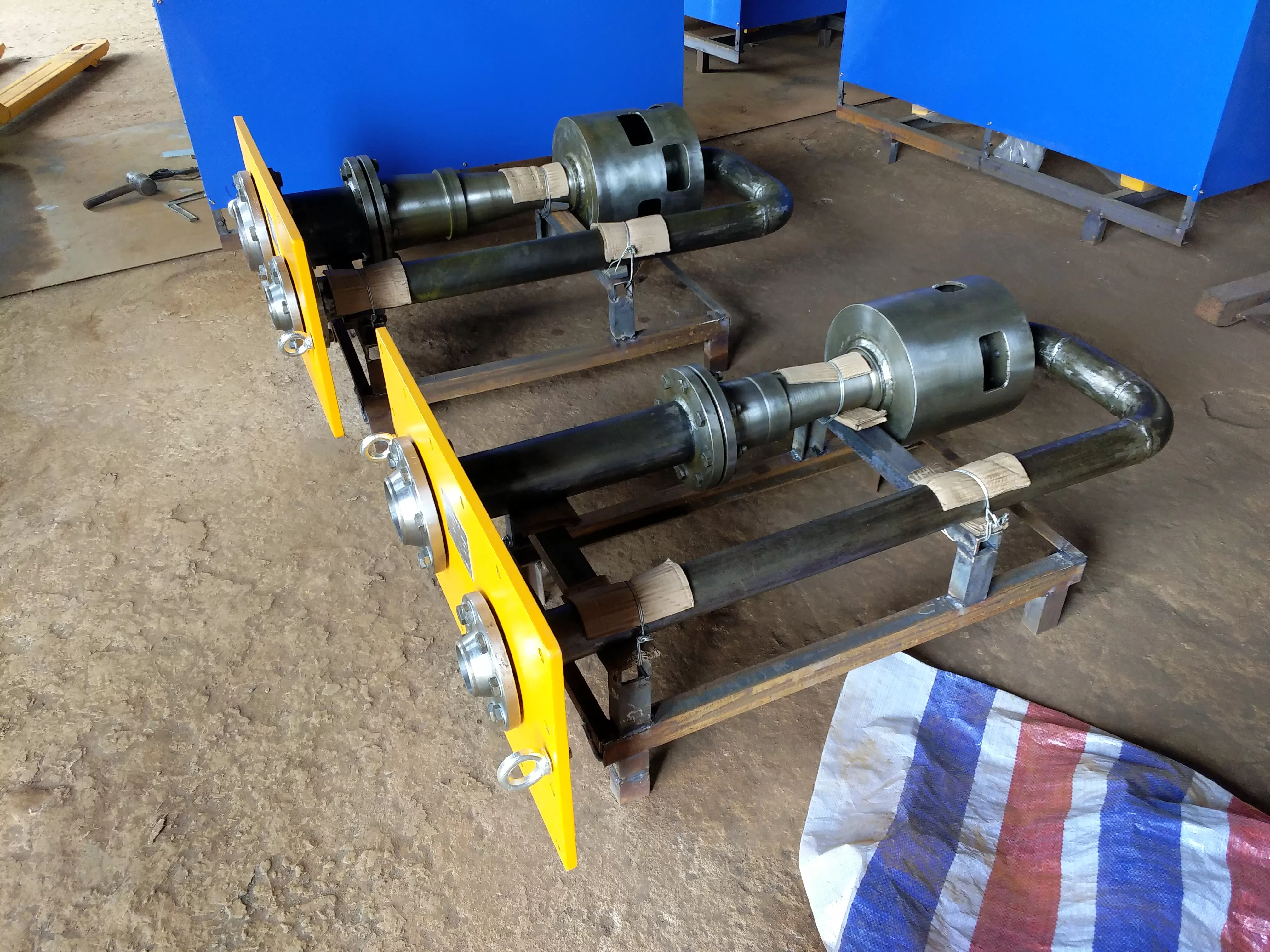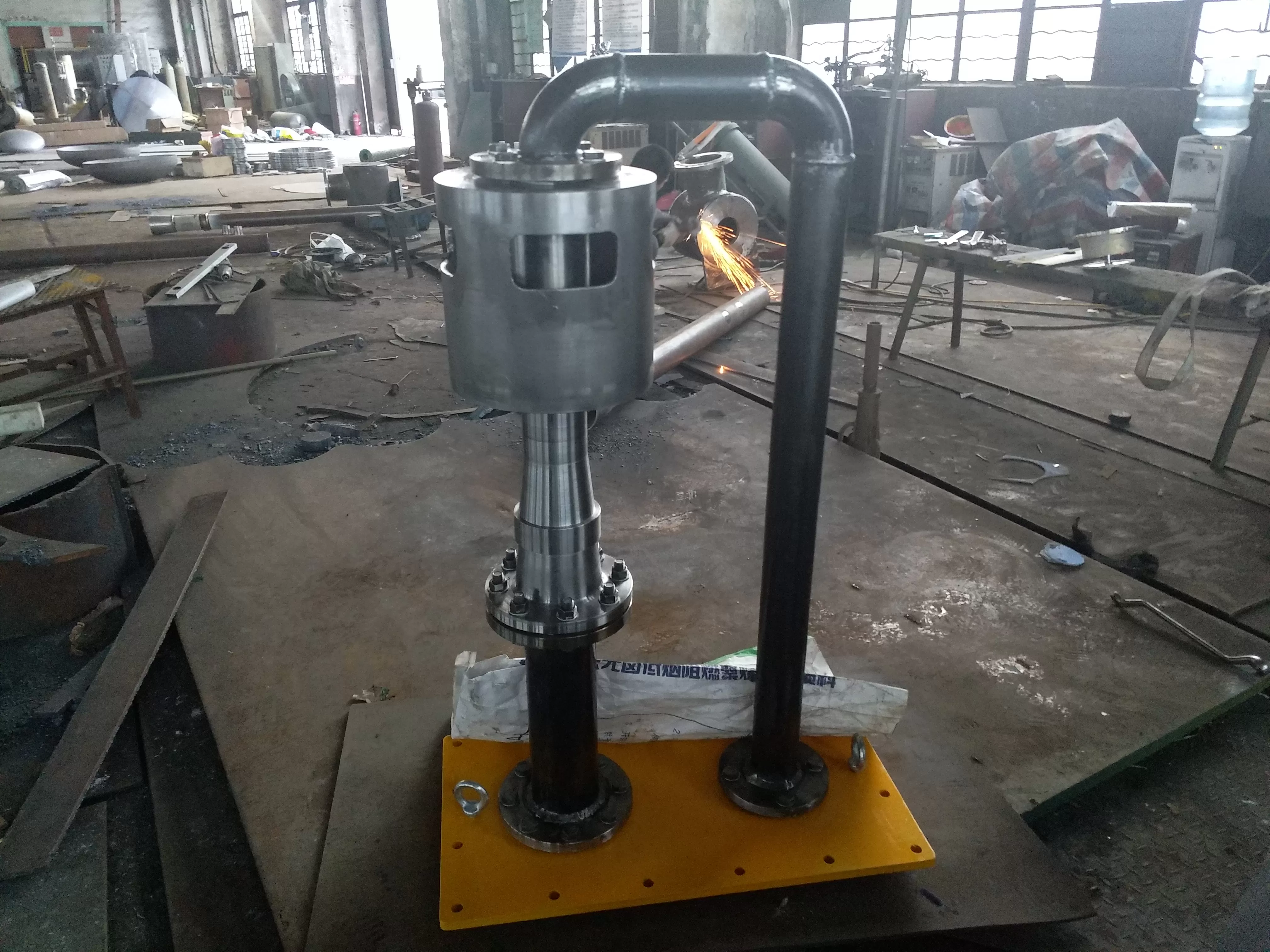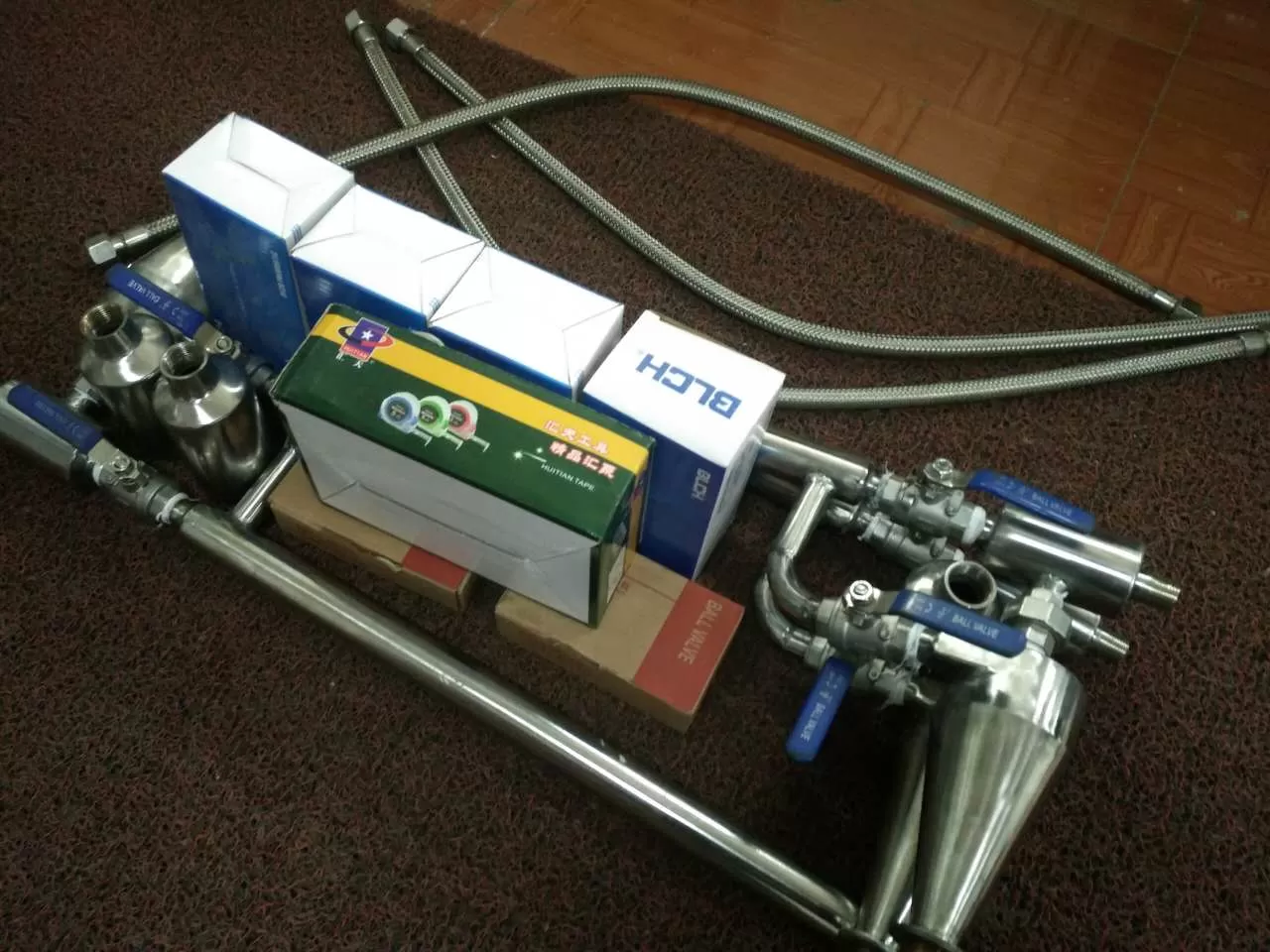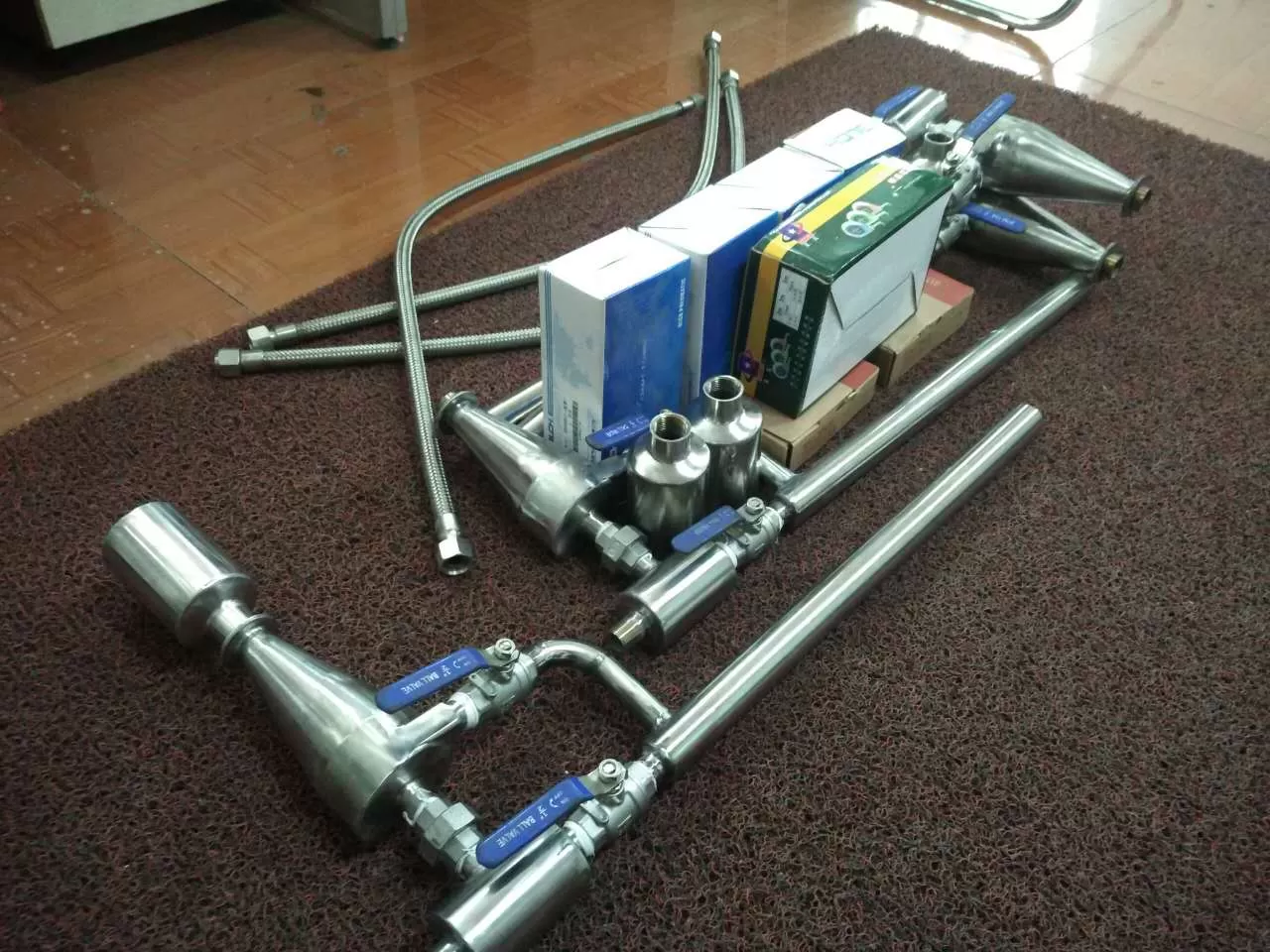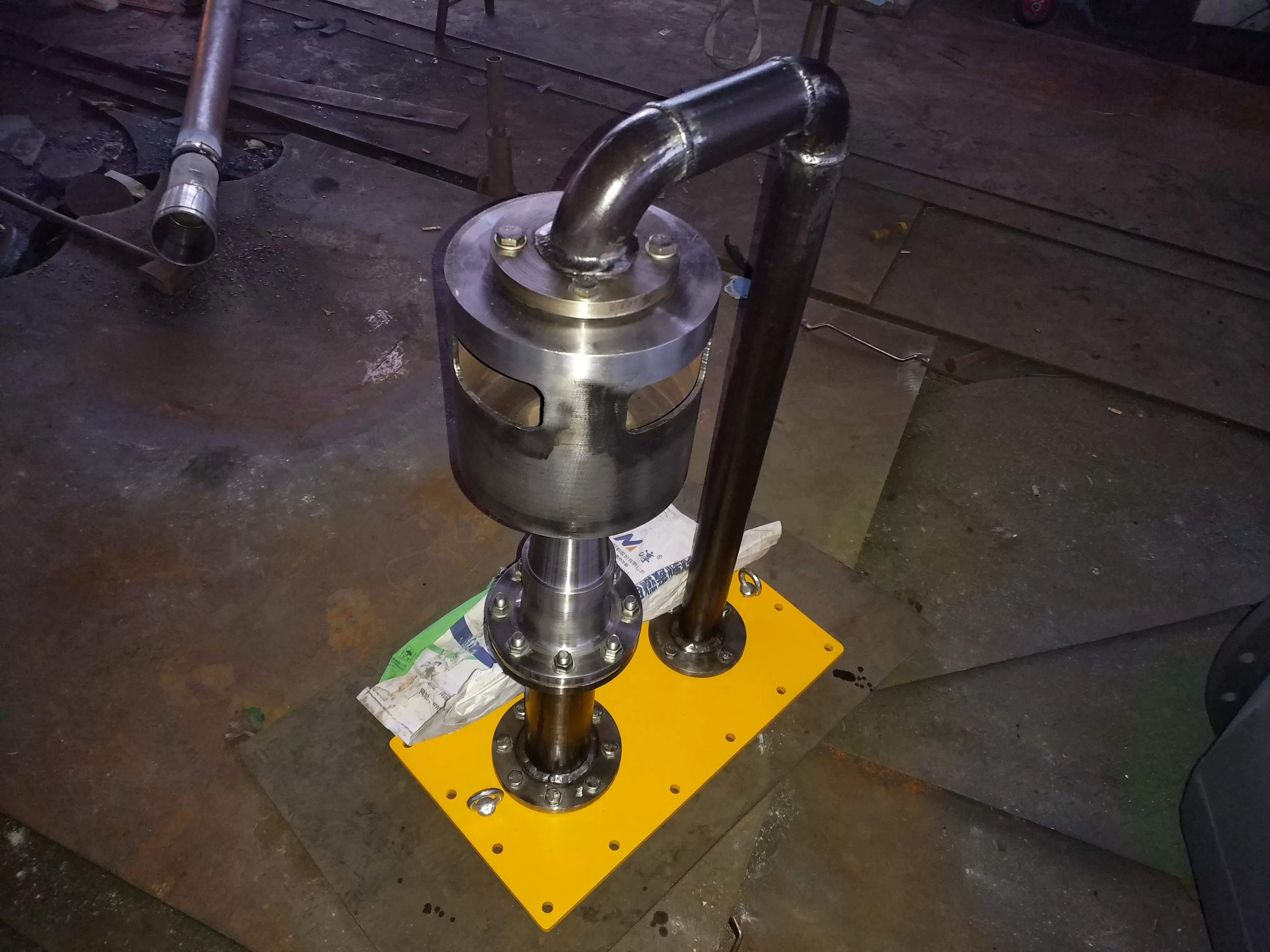Introduction to accident fuel tank:
The main function of the accident oil tank is to receive oil from the main oil tank into the accident oil tank when the oil system of the steam turbine unit or the main oil tank catches fire or leaks, endangering the safe operation of the unit.
The arrangement of the accident oil tank in the lubricating oil system of the steam turbine unit:
(l) The main oil tank of the steam turbine, including the pump, oil cooler, and oil purification device, is arranged in the turbine room on the A-row column side of the meter level machine head, and away from high-temperature pipelines and equipment;
(2) Set up fire barriers for the main oil tank arranged in a centralized manner, including pumps, oil coolers, and oil purification devices;
(3) For units of 200MW and above, a combination oil tank and a set of oil pipelines shall be used;
(4) The main oil tank and oil system of the steam turbine must consider fire prevention measures; Oil system - selection of pipeline and accessory materials - must meet the requirements;
(5) An accident oil tank (pit) should be installed at an appropriate location outside the main factory building, and its layout elevation and oil pipeline layout should ensure smooth oil drainage during accidents. The volume of the accident fuel tank (pit) should not be less than the oil volume of the oil system of a large unit;
(6) The accident oil drain valve from the oil system to the accident oil tank (pit) should be arranged in a safe and easy to operate location, and there should be two pedestrian passages to reach it;
Introduction to drainage tank:
A drainage tank is used to store pipeline drainage, such as condensed water formed during the operation of low-pressure heaters and other steam equipment. Although there is a possibility of pollution in general, it is still relatively pure, and has good utilization value from both economic and energy saving considerations. So the drainage tank is a water storage device that stores and prepares the condensed water for use. The structure is divided into circular and square shapes, and the production series has a length of 10m ³、 20m ³、 30m ³、 40m ³、 50m ³ Wait. Customers can provide relevant design drawings for manufacturing.
Drainage water tank - General composition structure -
The drainage box should include the following components: (1) the main body of the drainage box, (2) the base, (3) the maintenance manhole, (4) the interface pipe seat of each system, (6) the drainage port, air release port, (7) the lifting ear, (8) instrument accessories and other accessories, optional accessories such as liquid level gauge, pressure gauge, thermometer, internal ladder, external ladder, etc.
Introduction to pressure equalization box:
The pressure equalization box is mainly used for gathering, distributing, and balancing steam pressure. The pressure equalization box is designed for steam seals.
1. Balance the expansion and pressure reduction of the steam entering and exiting the casing, adjust the pressure and temperature of the steam required for the start-up shaft seal to 2.94~29.4 KPa, with a temperature of 120~140 degrees, supply steam to the rear shaft seal during start-up. During normal operation, the shaft seal steam can also supplement the rear shaft seal steam, and collect the high-pressure side steam of the water control check valve for low-pressure extraction (three, four, five extraction);
2. Prevent the steam turbine shaft seal from flowing outward to improve the workshop environment;
3. Prevent low-pressure shaft seal from inhaling air and affecting vacuum;
4. During hot start, provide high-temperature shaft seal steam to the rear shaft seal.
Introduction to Shooting Water Tank:
Due to the design inlet water temperature of the water jet air extractor being 20 ℃, the expansion pressure at the outlet of the gradually shrinking nozzle is 0.00343MPA, and its saturation temperature is 26 ℃. Water at 20 ℃ will not vaporize under this vacuum. As long as the water temperature in the injection tank does not exceed 26 ℃, it has almost no effect on the vacuum of the condenser. But when the temperature exceeds 26 ℃, the working water will vaporize at the nozzle, which will reduce the efficiency of the air extractor. The air extractor cannot draw a vacuum of 0.0052MPA. Therefore, during normal operation, it is necessary to maintain a constant overflow flow rate and ensure that the water temperature in the injection tank is below 26 ℃. The water temperature should not exceed the saturation temperature corresponding to the condenser vacuum. Otherwise, the working water will vaporize at the air extractor, which will seriously affect the suction capacity. The water temperature will decrease, The cooling effect of the condensable gas contained in the extracted gas increases the extraction rate by 95kp, corresponding to a saturation temperature of 26 degrees. Even with water at 27 degrees, a 300000 kw electric motor with a water jet pump cannot pump the vacuum inside the extraction device to 96kp.
Purpose of the water tank:
The jet water tank mainly stores water for the jet water extractor. The interior and exterior of the water tank, as well as the insertion pipes and partitions, will undergo rust and anti-corrosion treatment before leaving the factory.
Ejection tank - Specification composition structure -
The drainage box should include the following components: (1) the main body of the drainage box, (2) the base, (3) the maintenance manhole, (4) the interface pipe seat of each system, (6) the drainage port, air release port, (7) the lifting ear, (8) instrument accessories and other accessories, optional accessories such as liquid level gauge, pressure gauge, thermometer, internal ladder, external ladder, etc.
Pressure equalization box missing -:
The steam supply for the second extraction pressure equalization box and the shaft seal heater are not equipped with temperature regulating devices, and during operation, there may be situations where the steam supply temperature exceeds 220 ℃ for a long time. Therefore, the temperature can only be adjusted by adjusting the steam inlet of the pressure equalization box, which increases the workload of operators. On the other hand, adjusting the steam inlet also affects the stability of the steam seal pressure of the unit. Long term operation has a certain impact on the safety of the unit, Therefore, it is recommended to install a temperature reduction device at the pressure equalization box to address this issue.
How to avoid rising water temperature in the drainage tank:
1. During the operation of the drainage tank, it is necessary to closely monitor the temperature changes in the tank. If there is an increase, open the desalination water replenishment valve of the drainage tank to cool the water.
2. After the dual reducer is put into operation, close all startup drains.
3. Timely replace the water in the drainage tank and maintain the temperature below 50 degrees.
The working principle and function of the drainage tank:
The drainage tank of a power plant refers to the water formed by the condensation of steam in the pipeline. If steam is present, it will have an impact on the quality of the steam, so it needs to be discharged into the drainage tank. Water is precious, and the drainage has a certain temperature. Collecting the heated drainage into the drainage tank for reuse saves water resources and also saves some of the heat absorption process of water (coal saving). The drain to the drainage tank is distilled water, which is very clean. According to the principle of Henry's Law, a drainage tank can not only remove oxygen from water, but also simultaneously remove all gases dissolved in water. Atmospheric thermal deaerator is a device that heats water in a relatively closed container, filling the interior with water vapor. According to Henry's law, there are no other gases on the surface of the water, so that gases dissolved in water are separated and discharged into the atmosphere through the remaining steam- In general, the temperature of the thermal deaerator is 105 ℃ and the working pressure is 0.02Mpa. Negative pressure deoxygenation also has the same ability, but it is not as effective as thermal deoxygenation, and the operation is more complex- Numerical drainage water tank structure - type: square metal pressure water tank. The main purpose of the drainage tank is to store pipeline drainage.
The working principle and function of the pressure equalization box:
-The pressure equalization box has two automatic adjustment doors (adjustable pressure). During normal operation, when the steam volume of the unit is greater than the steam used for the rear steam seal, it will automatically discharge into the condenser to reduce environmental emissions. And only when the steam volume of the unit is less than the steam used for the rear steam seal, the 2-extraction or low extraction steam is supplied to the equalizing box through it to ensure the steam supply for the rear steam seal.
The working principle of the water jet tank:
The water jet pump sucks the industrial water from the water jet tank and boosts it before injecting it into the nozzle of the water jet steam pump through the water chamber. The nozzle converts the pressure energy of the pressure water into velocity energy. After the water flows out of the nozzle at high speed, a highly vacuum negative pressure zone is formed in the water chamber, so that the vapor and gas compounds inside the condenser are sucked into the water chamber and the industrial water enters the diffusion pipe, The water flow slows down and the pressure increases - then it is discharged from the diffusion pipe and enters the injection tank at a pressure slightly higher than atmospheric pressure. The design temperature is different, and the expansion pressure at the outlet of the gradually shrinking nozzle is also different, corresponding to different saturation temperatures. Industrial water will not vaporize at saturation temperatures. If the temperature of the industrial water in the water injection tank is higher than the saturation temperature, the industrial water will vaporize at the nozzle outlet of the water injection pump, which will reduce the extraction rate of the water injection pump and prevent the water injection pump from reaching the design working condition, resulting in the inability of the water injection pump to extract the specified vacuum. Therefore, in order to ensure the normal operation of the water jet steam extractor, the industrial water temperature in the water jet tank must meet the requirements. Because the normal operation water jet steam extractor extracts steam and gas compounds with a constant temperature, their discharge into the water jet tank will gradually increase the industrial water temperature of the water jet tank. Due to the increase in industrial water temperature, it can affect the working efficiency of the water jet steam extractor, thereby reducing the vacuum inside the condenser. So during normal operation, attention should be paid to adjusting the water supply valve of the injection tank to supplement industrial water with a lower temperature to maintain the water temperature of the injection tank. When adjusting the overflow flow rate of the water injection tank, it should be based on the water temperature of the water injection tank. Generally, the water temperature of the water injection tank should be below 26 ℃. In addition, the overflow flow rate should not fluctuate, and it should be adjusted so that the heat carried away by the overflow water is basically similar to the heat carried out by the steam and gas compounds in the condenser. So as to maintain both vacuum and not waste too much industrial water.
Technical parameters of drainage tank, equalizing tank, and injection tank: drainage tank SSX - (using numerical nominal volume m) ³) Equalizing pressure box: JYX - (using numerical nominal volume m) ³) Shooting water tank: SX - (using numerical nominal volume m) ³) Accident fuel tank: SGX - (using numerical nominal volume m) ³)
We mainly produce: drainage tanks, water storage tanks, oil storage tanks, pressure equalization tanks, waste water tanks, injection tanks, accident tanks, and other water tanks and oil tanks.
| 疏水箱,均压箱,射水箱事故油箱型号 | 疏水箱,均压箱,射水箱,事故油箱可根据客户来图制造 |
| 根据客户需求尺寸设计疏水箱及均压箱,射水箱 | SSX-10 SSX-20 SSX-30 | SX-10 SX-20 SX-30 | JYX-10 JYX-20 JYX-30
|
